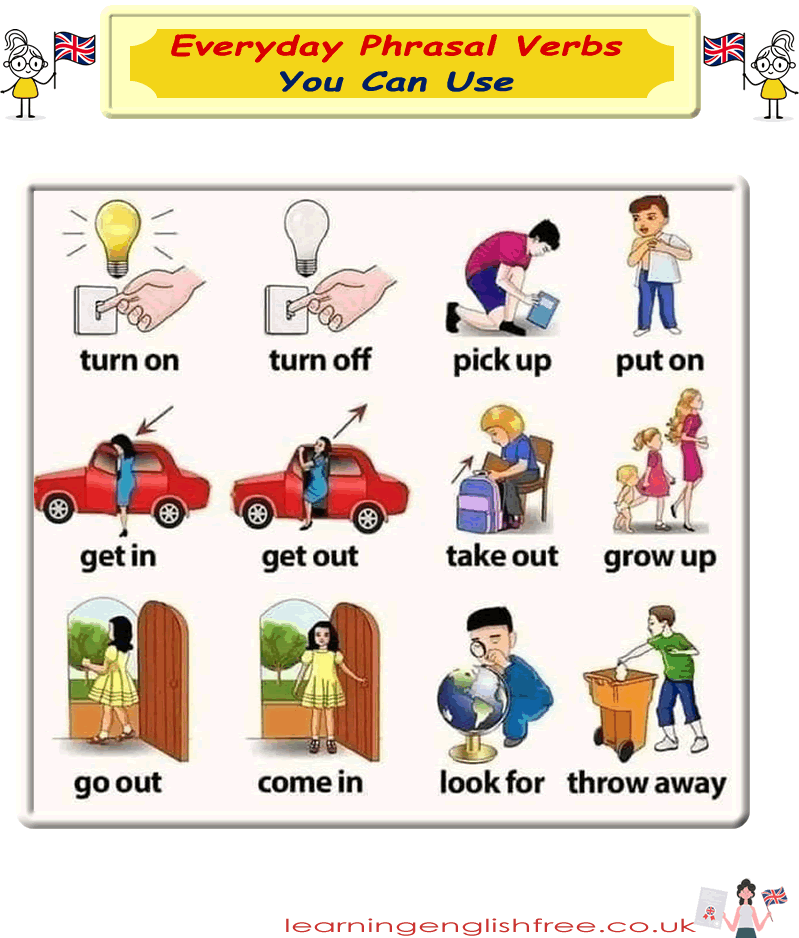
Everyday Phrasal Verbs You Can Use: A Guide for ESL Learners
Phrasal verbs are a unique and essential part of the English language, often posing a challenge to ESL learners due to their idiomatic meanings. These verbs consist of a verb and one or more prepositions or adverbs, creating a meaning different from the original verb. Understanding and using phrasal verbs can significantly enhance your English fluency and make your conversations sound more natural. In this lesson, we will explore some common phrasal verbs that are used frequently in everyday conversations. By the end of this guide, you'll be able to recognize, understand, and apply these phrasal verbs, enriching your vocabulary and boosting your confidence in English communication.
Useful Vocabulary for Understanding Phrasal Verbs
Before diving into specific examples, let's familiarize ourselves with some terms related to phrasal verbs:
-
Verb: An action word.
- Example: "run," "jump," "speak."
-
Preposition: A word used to show the relationship of a noun or pronoun to another word.
- Example: "on," "in," "at."
-
Adverb: A word that modifies a verb, an adjective, or another adverb.
- Example: "quickly," "silently," "well."
-
Idiomatic: An expression meaning something different from the literal meaning of the words.
- Example: "Break a leg" means good luck.
Understanding these components will help you grasp the concept of phrasal verbs more effectively. Now, let's move on to some everyday phrasal verbs with their meanings and examples.
Everyday Phrasal Verbs with Meanings and Examples
-
Turn on
- Meaning: To activate or start a device.
- Example: "Can you turn on the light, please?"
-
Get in
- Meaning: To enter (a vehicle, building, etc.).
- Example: "It's raining; get in the car quickly."
-
Turn off
- Meaning: To deactivate a device or a source of power.
- Example: "Don't forget to turn off the oven after baking."
-
Get out
- Meaning: To leave or exit a place or situation.
- Example: "We got out of the meeting early today."
-
Pick up
- Meaning: To lift something or someone; to collect someone or something.
- Example: "Can you pick up the groceries on your way home?"
-
Put on
- Meaning: To dress oneself with an item of clothing.
- Example: "It's cold outside. Put on your coat."
-
Take out
- Meaning: To remove something from somewhere; to extract.
- Example: "Please take out the trash before you go to bed."
-
Grow up
- Meaning: To mature or become an adult.
- Example: "When I grow up, I want to be a pilot."
-
Go out
- Meaning: To leave one's house to go to a social event.
- Example: "Do you want to go out for dinner tonight?"
-
Come in
- Meaning: To enter a room or building.
- Example: "The door's open, come in!"
-
Look for
- Meaning: To search for something or someone.
- Example: "I've been looking for my glasses all morning."
-
Throw away
- Meaning: To dispose of something that is no longer needed.
- Example: "Don't throw away those boxes; we can use them for storage."
More Examples of Everyday Phrasal Verbs
-
Hold on
- Meaning: To wait for a short time.
- Example: "Hold on a minute; I'll be right with you."
-
Break down
- Meaning: When a machine stops working due to malfunction.
- Example: "My car broke down on the way to work."
-
Look up
- Meaning: To search for information, especially in a book or online.
- Example: "If you don't know the word, look it up in the dictionary."
By incorporating these phrasal verbs into your daily conversations, you'll start sounding more like a native speaker and improve your overall command of the English language.
Summary and Takeaways
Phrasal verbs are an integral part of mastering the English language, offering a way to convey actions and ideas in a manner that is natural to native speakers. This lesson has provided you with a starting point for understanding and using common phrasal verbs in everyday conversations. Remember, the key to mastering phrasal verbs is practice and exposure. Try to incorporate these verbs into your spoken and written English as much as possible.
To reinforce your learning, create flashcards with each phrasal verb and its definition, use them in sentences, or find exercises online to test your understanding. Engaging with English media, such as movies, TV shows, and books, can also provide context for how these phrasal verbs are used naturally.
Sharing your learning journey on platforms like www.facebook.com/learningenglishfree.co.uk can motivate others and offer you additional tips and resources. Remember, learning a language is a marathon, not a sprint. Every little bit of knowledge adds up and brings you closer to fluency.
